A navigator is an individual responsible for guiding a vehicle to its destination.
Contents
Navigator may also refer to:
A navigator is an individual responsible for guiding a vehicle to its destination.
Navigator may also refer to:

Nokia Corporation is a Finnish multinational telecommunications, information technology, and consumer electronics corporation, established in 1865. Nokia's main headquarters are in Espoo, Finland, in the Helsinki metropolitan area, but the company's actual roots are in the Tampere region of Pirkanmaa. In 2020, Nokia employed approximately 92,000 people across over 100 countries, did business in more than 130 countries, and reported annual revenues of around €23 billion. Nokia is a public limited company listed on the Nasdaq Helsinki and New York Stock Exchange. It was the world's 415th-largest company measured by 2016 revenues, according to the Fortune Global 500, having peaked at 85th place in 2009. It is a component of the Euro Stoxx 50 stock market index.
Transit may refer to:
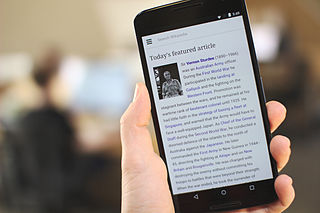
A smartphone is a mobile device that combines the functionality of a traditional mobile phone with advanced computing capabilities. It typically has a touchscreen interface, allowing users to access a wide range of applications and services, such as web browsing, email, and social media, as well as multimedia playback and streaming. Smartphones have built-in cameras, GPS navigation, and support for various communication methods, including voice calls, text messaging, and internet-based messaging apps.
An eclipse is an astronomical event.
Zero Hour may refer to:
Navi may refer to:
A storm is a severe weather condition.

Minimo was a project to create a version of the Mozilla web browser for small devices like personal digital assistants and mobile phones.
Twig Com Ltd. is a mobile telecommunications company founded in 2011 and headquartered in Salo, Finland. The company develops and manufactures personal safety and GPS tracking products and software for worker protection, telecare, and asset tracking applications. The operation was originally started in 1988 as mobile phone manufacturer Benefon who began research on GPS safety phones in 1995 and launched the first commercial GPS/GSM safety phone, the Benefon Track, in 2000. Twig Com Ltd acquired Benefon's Twig business from GeoSentric OYJ through a purchase agreement signed in January 2011.
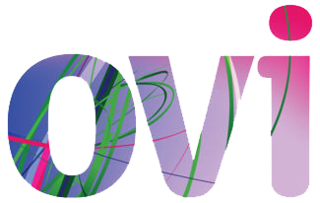
Ovi by Nokia was the brand for Nokia's Internet services. The Ovi services could be used from a mobile device, computer or via the web. Nokia focused on five key service areas: Games, Maps, Media, Messaging and Music. Nokia's aim with Ovi was to include third party developers, such as operators and third-party services like Yahoo's Flickr photo site. With the announcement of Ovi Maps Player API, Nokia started to evolve their services into a platform, enabling third parties to make use of Nokia's Ovi services.
A mobile operating system is an operating system used for smartphones, tablets, smartwatches, smartglasses, or other non-laptop personal mobile computing devices. While computers such as typical/mobile laptops are "mobile", the operating systems used on them are generally not considered mobile, as they were originally designed for desktop computers that historically did not have or need specific mobile features. This line distinguishing mobile and other forms has become blurred in recent years, due to the fact that newer devices have become smaller and more mobile unlike hardware of the past. Key notabilities blurring this line are the introduction of tablet computers, light-weight laptops, and the hybridization of the two in 2-in-1 PCs.
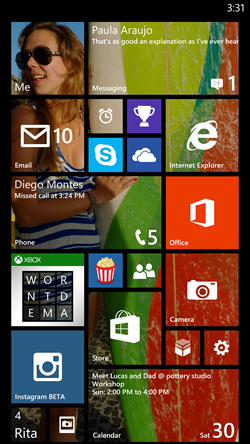
Windows Phone (WP) is a discontinued mobile operating system developed by Microsoft for smartphones as the replacement successor to Windows Mobile and Zune. Windows Phone featured a new user interface derived from the Metro design language. Unlike Windows Mobile, it was primarily aimed at the consumer market rather than the enterprise market.
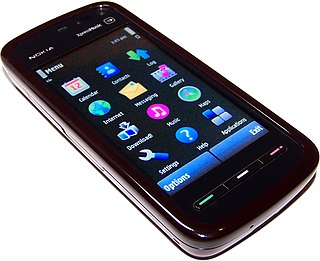
Nokia 5800 XpressMusic is a smartphone part of the XpressMusic line, announced by Nokia on 2 October 2008 in London and started shipping in November of that year. Code-named "Tube", it was the first touchscreen-equipped S60 device by Nokia – essentially it was the first device to run Symbian^1, also known as S60 5th Edition, the touch-specific S60-based platform created by the Symbian Foundation. The touchscreen features tactile feedback.

Samsung GT-i8910 Omnia HD is a smartphone manufactured by Samsung Electronics, first announced at MWC 2009 on February 18, 2009. The device was the first phone capable of playing and recording 720p HD video. It runs on the S60 5th Edition (Symbian^1) platform, the only Samsung device to do so.

MixRadio was an online music streaming service owned by Line Corporation. The service was first introduced by Nokia in 2011 as Nokia Music for Windows Phone, serving as a successor to Nokia's previous Nokia Music Store/Comes with Music/Ovi Music Store initiatives, which was based on the LoudEye/OD2 platform. After its acquisition of Nokia's mobile phone business, the service was briefly maintained by Microsoft Mobile Oy before it was sold to Japanese internet company Line Corporation in 2015. Following the acquisition, MixRadio expanded to Android and iOS in May 2015.

The Nokia N8 is a touchscreen-based smartphone developed by Nokia. Announced on 27 April 2010, the Nokia N8 was the first device to run on the Symbian^3 mobile operating system and it was the company's flagship device for the year. It was released on 30 September 2010 at the Nokia Online Store before being released in markets around the world on 1 October 2010. There were two version made, the N8 and the N8-00. The N8 was made for Vodafone and locked to its networks, and the N8-00 was made by Microsoft and open network.

Microsoft Lumia is a discontinued line of mobile devices that was originally designed and marketed by Nokia and later by Microsoft Mobile. Introduced in November 2011, the line was the result of a long-term partnership between Nokia and Microsoft—as such, Lumia smartphones run on Microsoft software, the Windows Phone operating system; and later the newer Windows 10 Mobile. The Lumia name is derived from the partitive plural form of the Finnish word lumi, meaning "snow".
Microsoft mobile services are a set of proprietary mobile services created specifically for mobile devices; they are typically offered through mobile applications and mobile browser for Windows Phone platforms, BREW, and Java. Microsoft's mobile services are typically connected with a Microsoft account and often come preinstalled on Microsoft's own mobile operating systems while they are offered via various means for other platforms. Microsoft started to develop for mobile computing platforms with the launch of Windows CE in 1996 and later added Microsoft's Pocket Office suite to their Handheld PC line of PDAs in April 2000. From December 2014 to June 2015, Microsoft made a number of corporate acquisitions, buying several of the top applications listed in Google Play and the App Store including Acompli, Sunrise Calendar, Datazen, Wunderlist, Echo Notification Lockscreen, and MileIQ.

Microsoft Mobile Oy was a subsidiary of Microsoft involved in the development and manufacturing of mobile phones. Based in Espoo, Finland, it was established in 2014 following the acquisition of Nokia's Devices and Services division by Microsoft in a deal valued at €5.4 billion, which was completed in April 2014. Nokia's then-CEO, Stephen Elop, joined Microsoft as president of its Devices division following the acquisition, and the acquisition was part of Steve Ballmer's strategy to turn Microsoft into a "devices and services" company. Under a 10-year licensing agreement, Microsoft Mobile held rights to sell feature phones running the S30/S30+ platform under the Nokia brand.
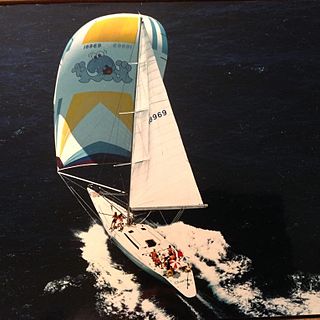
Stan Honey is an American professional offshore navigator with world sailing records and a businessman who founded Etak and Sportvision.